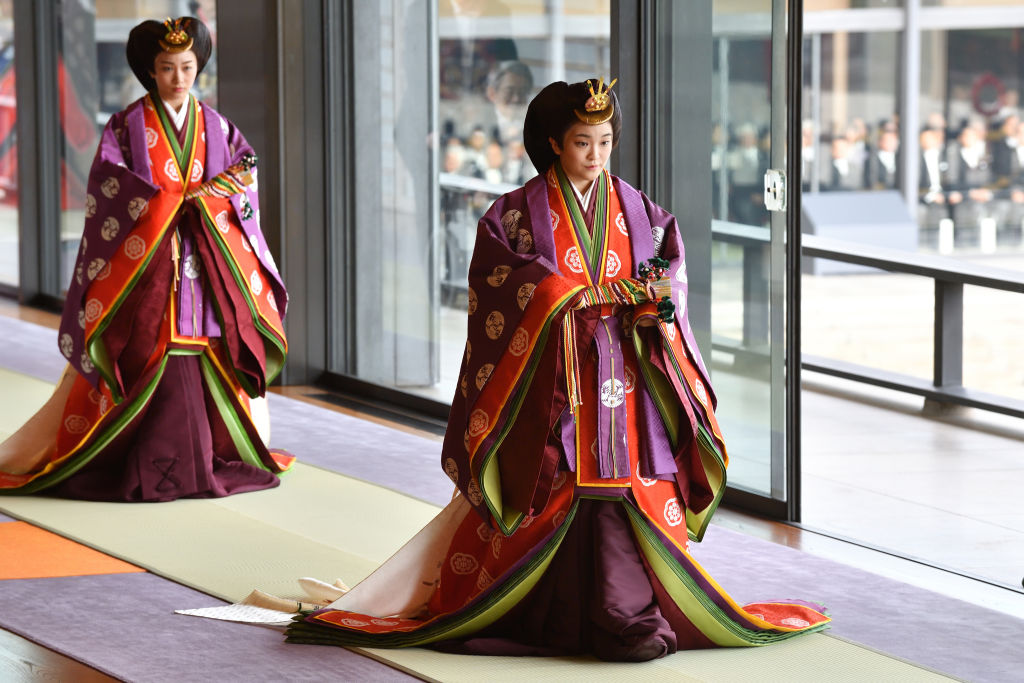Mako Komuro, the onetime Japanese princess who gave up her royal status to marry a commoner, arrived in the United States on Sunday with her new husband Kei Komuro, to begin their new life.
The couple, both 30, landed at New York City’s John F. Kennedy International Airport and were escorted through the facility by security personnel, Japan’s public broadcaster NHK reported.
Their decision to reside in the U.S. carries echoes of Prince Harry and Meghan Markle’s departure from the U.K. for California following reports of tiffs within the British royal family and relentless attention from the press.
Read More: Japan’s Royal Women and Their History of Mental Stress
The former Princess Mako—the niece of Emperor Naruhito—has been the subject of intense public scrutiny in Japan since the beginning of her relationship with Komuro, her college sweetheart. The media storm intensified when Komuro’s mother became embroiled in a financial scandal, prompting the couple to postpone their wedding.
Komuro then left Japan to study in a New York law school and only returned in September this year to fulfill his promise to his fiancée. According to the Associated Press, he has a job a a New York law firm but has yet to pass his bar exam. Media reports say the couple will be living in a rented apartment.

Imperial household authorities previously said the extensive tabloid coverage of her relationship caused the onetime princess to suffer from post-traumatic stress disorder. Experts say the suffocating protocol of life in the Japanese royal family puts additional pressure on its members, making non-royals think twice about joining the imperial ranks.
Read More: Princess Mako’s Wedding Reignites Succession Debate in Japan
“The standards that you are expected to uphold, in your bearing, in your demeanor, in the choices of entertainment, of education, of all these things, they’re held at a very high level that most people would find incredibly stifling,” Shihoko Goto, an expert on Japan, and acting director of the Asia Program at the Wilson Center in Washington, told TIME earlier.
The marriage has also brought to the fore the issue of imperial succession in the face of a thinning royal line.
Only men may become emperors of Japan, leaving 15-year-old Prince Hisahito, 55-year-old Crown Prince Akishino, and Emperor Naruhito’s 85-year-old uncle, Prince Hitachi, as viable successors.
Correction, Nov. 15:
The original version of this story misstated Shihoko Goto’s title. She is acting director of the Asia Program at the Wilson Center, not a senior Northeast Asia associate.
More Must-Reads from TIME
- Why Trump’s Message Worked on Latino Men
- What Trump’s Win Could Mean for Housing
- The 100 Must-Read Books of 2024
- Sleep Doctors Share the 1 Tip That’s Changed Their Lives
- Column: Let’s Bring Back Romance
- What It’s Like to Have Long COVID As a Kid
- FX’s Say Nothing Is the Must-Watch Political Thriller of 2024
- Merle Bombardieri Is Helping People Make the Baby Decision
Contact us at letters@time.com